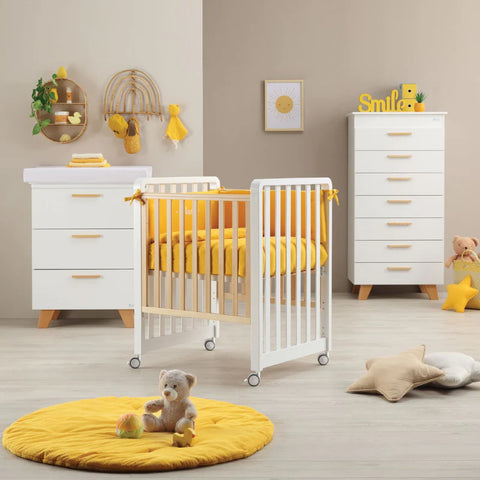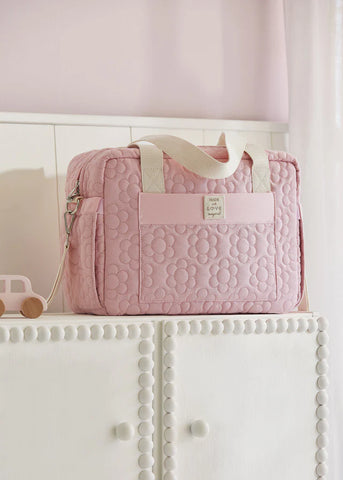Every moment spent with your baby is a precious gift, but also an enormous responsibility. Especially when it comes to their sleep, safety comes first.
Baby suffocation in bed is one of the biggest fears of parents, but there are steps you can take to prevent it and make sure your little one sleeps soundly without any problems.
Let's explore together some tips and recommendations to calm your heart and give your baby a peaceful sleep.
How do you prevent your baby from choking?
- The first step is to prepare the place to sleep. Choose a crib according to safety standards for infants, according to their age and size. Here is our collection of quality cots at prices to suit all budgets.

- But also a mattress with a medium degree of firmness, this being essential for preventing accidental suffocation during sleep.
- Do not leave stuffed animals, blankets or other fabrics in the child's bed, as they can suffocate. Avoid leaving anything in the crib.
- Another important aspect is the correct positioning of the baby in the bed. Many parents choose to put their babies to sleep on their backs because this position is considered the safest for preventing suffocation and sudden infant death syndrome.
Make sure the baby is lying on his back while sleeping, face up. Thus, it can breathe freely and move naturally during sleep.
Of course, before making a decision related to the safety and health of the child, ask your doctor for advice.

- Babies should not share a bed with other children or adults as it increases the risk of accidental suffocation.
This is a controversial topic, as some parents believe that the baby's place is next to them in the same bed, while others are concerned about this aspect.
Yes, there are benefits to this behavior, even supported by some studies, but according to an article posted on kidshealth.org, it seems that there may be more risks than benefits. We discuss this topic in another article.
- Make sure the crib sheet fits snugly on the mattress so it doesn't come off and wrap around the baby's head. To avoid this, you can buy crib sheet holders to keep the sheets in place.
- Another strategy you can adopt is the constant monitoring of the baby during sleep . There are now a lot of products and devices to detect potential problems in real time. They can be an excellent choice for parents especially concerned about the risk of suffocation during sleep, and more.
What else should I know?
If you are expecting a baby or if you already have a baby, it is good to:

- Make sure the home is safe. Search all around the rooms, under the bed or other pieces of furniture and remove any items that could be dangerous.
- Learn how to give first aid to a newborn so that you are prepared in case of an emergency. There are special short courses that can save your little one's life before the paramedics arrive.
You can also invest in a side sleeper to prevent your baby from rolling over during sleep and maintain their back position. These supports are designed to provide extra support for your baby's head and body, reducing the risk of suffocation during sleep.
Even with these precautions, children can still get hurt and accidents can happen. But being prepared with all these recommendations in mind, as well as your doctor's advice, will help you act quickly and confidently if an emergency happens.
Remember to always pay attention to any changes in your baby's sleep behavior. If you notice any signs of difficulty breathing or other problems, contact a doctor immediately.
In the end, the most important thing is to always be connected to your baby's needs and safety. Pay attention to the environment in which he sleeps, choose the right products and monitor him constantly. With a little preparation and attention, you can help your baby sleep safely and you have peace of mind.
I hope this article is a useful guide for you. Take care of yourself and your little one!



